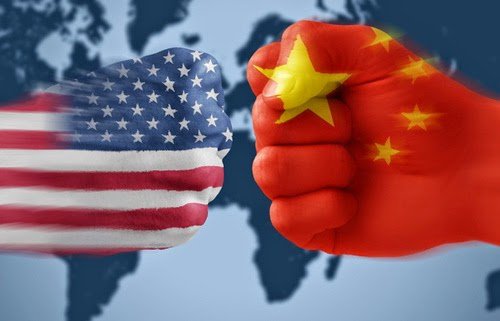
A fresh war of words has erupted between Beijing and the new US government over the sovereignty of the South China Sea.
Beijing has asserted its “indisputable sovereignty” over parts of the waters after the Trump administration vowed to prevent China from taking territory in the region.
The Chinese foreign ministry vowed that Beijing would “remain firm to defend its rights in the region”.
Recently we reported (here) how official Chinese media reacted with fury after Secretary of State Rex Tillerson said he would deny China access to its man-made islets in the waters. The state-owned China Daily warned “it would set a course for devastating confrontation between China and the US”.
The more recent statements came after White House spokesman Sean Spicer said the US would “make sure we protect our interests there”.
He added: “It’s a question of if those islands are in fact in international waters and not part of China proper, then yeah, we’re going to make sure that we defend international territories from being taken over by one country.”
Barack Obama’s administration refused to take sides in the dispute. It did, however, send B-52 bombers and a naval destroyer last year, and the then Secretary of State John Kerry spoke out at what he called “an increase of militarisation from one kind or another” in the region.
Late last year, tensions threatened to boil over after an increasingly confident Chinese Navy seized a US Navy underwater drone just 40 miles off Subic Bay. (See our reports here and here.)
Chinese media said Mr Spicer’s comments would require Washington to “wage war”.
However, the Chinese government gave a more measured response, saying that the US was “not a party to the South China Sea issue”.
Foreign Ministry spokesman Hua Chunying said China was “committed to peaceful negotiations with all countries concerned” in the dispute, and said it “respects the principles of freedom of navigation and over-flight in international waters”.
But, he continued: “Our position is clear. Our actions have been lawful.”
Rival countries have wrangled over territory in the South China Sea for centuries, but tension has steadily increased in recent years.
Last year, an arbitration at the International Court ruled in the Philippines’ favour over resource rights in the disputed waters. (See report here.) Recently, however, President Duterte has apparently back pedalled on his country’s claims, favouring improved relations with Beijing.
The Russians are also making their presence felt in the region, with a high-profile visit to Manila by two navy vessels recently. (See reports here and here).
The frictions have sparked concern that the area is becoming a flashpoint with global consequences.

Comments are closed.